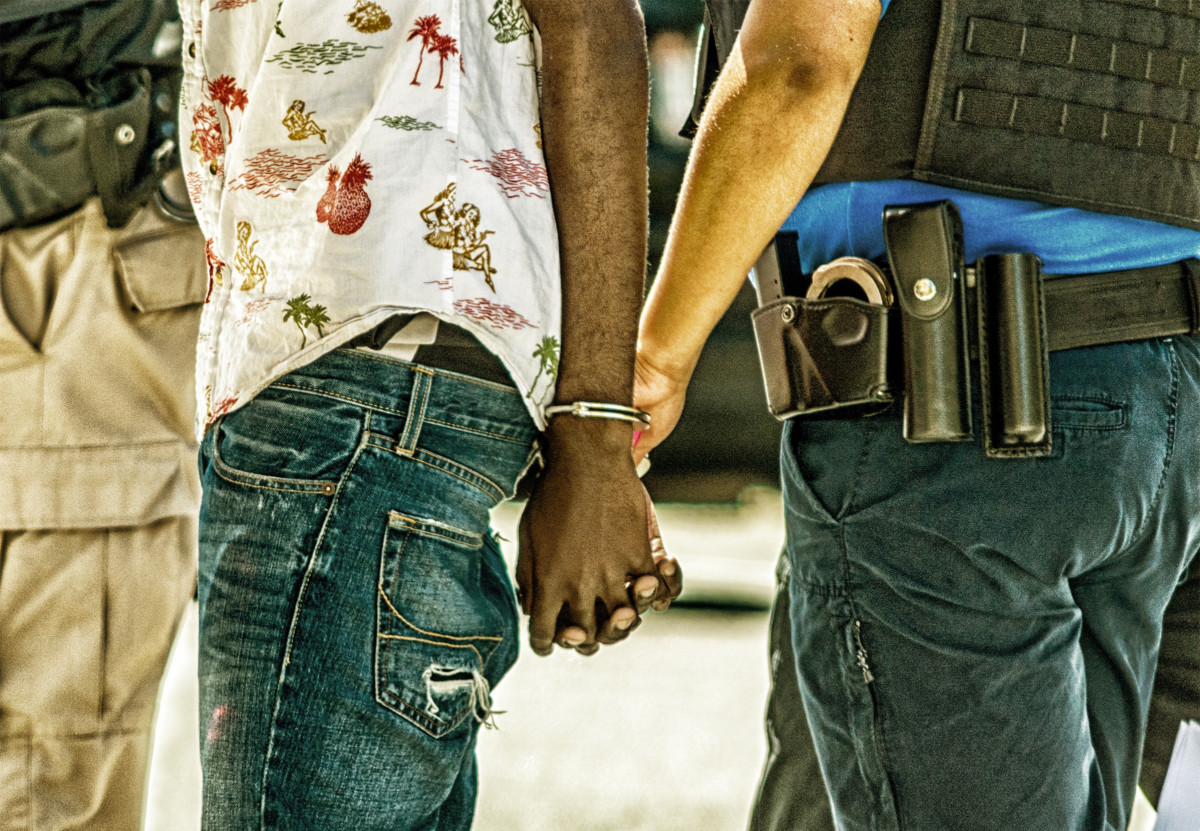The United States saw an uptick in arrests for drug violations last year, including an increase in marijuana arrests despite legalization in four states and other decriminalization efforts.
Law enforcement made 1.6 million drug arrests last year, more than any other crime, according to annual data released this week by the FBI.
That’s a nearly 4 percent increase from 2016, according to analysis from the Drug Policy Alliance. On average, one person was arrested for drugs every 20 seconds in the US last year.
The vast majority of drug arrests in 2017 — over 1.4 million — were simply for nonviolent drug possession violations alone. That total is more than twice the number of people arrested for violent crimes, such as assault and manslaughter.
The uptick in drug arrests came as the Trump administration refocused federal law enforcement resources on the war on drugs and initiated a brutal crackdown on immigrants that continues today. Attorney General Jeff Sessions, a drug war hardliner, has sparred with members of Congress over his attempts to crack down on marijuana in states where it has been legalized for medical and recreational use.
“The increase in overall drug possession arrests comes at a time when there’s an emerging public, political, and scientific consensus that otherwise-law-abiding people should not be arrested, let alone locked away behind bars, simply for possessing a drug,” wrote Suchitra Rajagopalan, a Drug Policy Alliance research coordinator, in a blog post this week.
Police made 659,700 arrests for marijuana crimes last year, and 91 percent of those arrests were for marijuana possession offenses alone, according to the National Organization for the Reform of Marijuana Laws (NORML). Marijuana arrests have dropped sharply in states that have legalized and decriminalized cannabis products, but the number of marijuana arrests nationwide increased in 2017 for the second year in a row after steadily falling for nearly a decade.
NORML Political Director Justin Strekal pointed out that marijuana arrests increased both in the final year of the Obama administration and the first year of the Trump administration. However, recreational cannabis became legal in four additional states as Trump took office in 2017, including the heavily populated state of California.
“When you look at law enforcement around the country … they are looking for guidance from the top law enforcement official in the land, and that is Jeff Sessions,” Strekal said in an interview. “He has been a militant prohibitionist his entire career, and constantly preyed on the fear and anxieties of culture warriors to increase funding for the criminalization of the poor and minorities.”
Despite the increase in marijuana and other drug arrests, much of the country is moving in the opposite direction as policy makers are confronted with the harms of drug criminalization. Mass incarceration, clear racial disparities in drug arrests and the ongoing opioid overdose epidemic have forced policymakers to consider taking a public health approach to drugs, rather than throwing people in jail.
Drug prohibition has also fueled mass deportations under the Trump administration’s harsh immigration policies. Even legal permanent residents can be jailed and deported for possessing small amounts of drugs or more than an ounce of marijuana, according to the Drug Policy Alliance.
Law enforcement officers can also use drug possession as an excuse to search cars and private property, which could lead to the arrest of undocumented immigrants. The war on drugs has had disproportionate impacts on communities of color, and police have long profiled Black and brown folks — particularly young men — for drug arrests. This has made drug prohibition a serious human rights concern.
“In recent years, the United Nations, World Health Organization, the International Red Cross, the NAACP, the Movement for Black Lives and several other national and international organizations have called for the repeal of laws that criminalize drug use and possession,” Rajagopalan wrote.
Nine states have legalized recreational cannabis products and dozens more regulate marijuana for medical use. Local governments across the country have also decriminalized possession of small amounts of marijuana and other drugs. In Congress, both Democrats and Republicans have introduced legislation that would end federal marijuana prohibition.
During the November elections, voters in four more states – Utah, Missouri, Michigan and North Dakota — will consider ballot initiatives that would legalize marijuana in one form or another.
Across the country, public health advocates are responding to the opioid overdose epidemic by increasing access to health care and medication for opioid users rather than targeting them for arrest. In the process, harm reduction strategies such as syringe exchange have emerged from the underground to become the gold standard for promoting health and preventing the spread of disease.
In cities such as San Francisco and Seattle, reformers are even experimenting with safe injection sites that can drastically reduce the harms of using opioids.
The Trump administration is actively combatting these efforts. In a recent op-ed, Deputy Attorney General Rod Rosenstein warned that safe injection sites are illegal and threatened to interfere with plans to establish them in California. A recent BuzzFeed investigation found that White House officials secretly organized an inter-agency committee to attack public support for marijuana legalization.
Join us in defending the truth before it’s too late
The future of independent journalism is uncertain, and the consequences of losing it are too grave to ignore. To ensure Truthout remains safe, strong, and free, we need to raise $24,000 by the end of today. Every dollar raised goes directly toward the costs of producing news you can trust.
Please give what you can — because by supporting us with a tax-deductible donation, you’re not just preserving a source of news, you’re helping to safeguard what’s left of our democracy.
